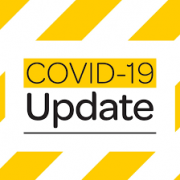We have seen an increased occurrence of employees resigning and then raising a PG, stating that their resignation was constructive dismissal and unjustified. In many instances they haven’t previously raised their concerns with their employer or the issues raised appeared minor with the employer believing each was addressed at the time as no further concern was raised by the employee. However, post-resignation, the employee might list all of the minor issues trying to prove that a trend existed. They may even claim an illness that they believe resulted from issues in their employment.
It is reassuring to see the Employment Relations Authority reject a recent claim of constructive and unjustified dismissal by Kathryn Gifkins that she was forced to resign from her position at Marinoto Rest Home in Taranaki.
The claim followed two incidents; one regarding a false accusation of Gifkins dragging a resident and the other about her being stalked by a dementia patient. Gifkins claimed her manager did nothing about either incident and so felt she had no option but to resign i.e. her resignation was constructive dismissal and was unjustified.
Gifkins was employed as a healthcare assistant at Marinoto Rest Home in July 2016. Two issues arose, shortly after she started which she said were of “significant concern for her”.
She soon realised that she was expected to dispense medication to patients which was something she felt uncomfortable doing in case she made a mistake and also felt it was a a registered nurse duty.
Her manager, Barbara Kay, said Gifkins did not convey her concerns about making a mistake and commented that Gifkins was “very competent” at providing medication and had no concerns about her confidence.
The Authority was satisfied the dispensing of blister pack medications was a reasonable activity for Gifkin’s position.
The second issue Gifkins had was with a dementia patient who became “infatuated” with her.
The patient told her he wanted to marry her and proposed to her. He continuously sought her out, giving gifts, making phone calls to her home and following her to the car park.
Despite complaining to Kay about feeling harassed, she said her concerns were never addressed.
However, Kay argued she told Gifkins she did not have to go to the area of the rest home where the patient was living, she did not have to care for him or communicate with him.
Gifkins said it was difficult to distance herself from him due to the size of the rest home.
The Authority member said it was clear Gifkins received unwanted attention from the resident, but she could not apportion blame to the rest home as options were given to her by management to reduce the interaction.
In May 2017, Gifkins resigned. This followed an incident which Gifkins described as “the final straw”.
Gifkins claimed that earlier that day Kay falsely accused her of dragging a patient when she and another carer were trying to lift a patient off the floor into a chair.
Gifkins claimed Kay yelled “Are you dragging him or lifting him?”. Kay admitted she said those words, but denied she yelled them, or directed them solely at Gifkins.
Gifkins said she was unhappy with the way she had been treated and felt distressed that Kay had not listened to her or been responsive.
The Authority member noted that Kay’s manner, along with the words used at the time of the incident, may have been “insensitive and unhelpful in the moment” and added “I accept, however, that Ms Gifkins was unhappy and resentful as a consequence, but I am not at all persuaded that the interaction could be regarded as a breach of Ms Gifkins’ employment, let alone one that could be fairly characterised as dismissive or repudiatory conduct that would make it reasonably forseeable Ms Gifkins would resign, an employer is under no contractual obligation to behave sensitively towards its employees.”
A constructive dismissal occurs where an employee resigns from employment but really the resignation was forced or initiated by the action(s) of the employer.
The Authority assessed whether a substantial risk of resignation was reasonably foreseeable and found that it was not in this case.








